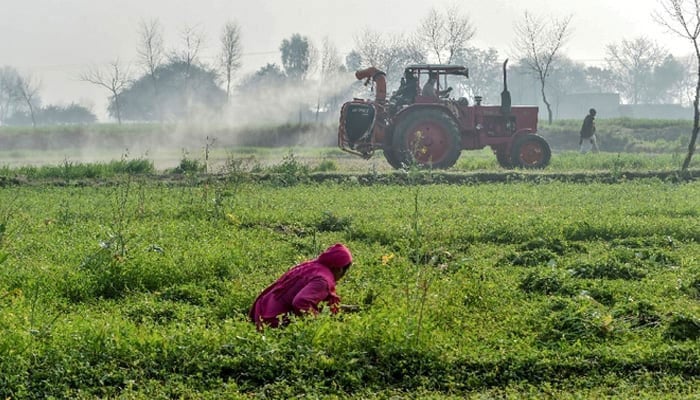In a significant development, Pakistan has assured the International Monetary Fund (IMF) that it will enforce the Agricultural Income Tax (AIT) from January 2025. This move comes as part of the country’s efforts to meet its commitments under the IMF program and address the need for increased tax revenue.
Provincial Agreement on AIT Legislation
All provincial governments have agreed to move forward with the legislation required for implementing the agricultural income tax. Punjab has already approved the AIT law through its provincial assembly, leading the process. The Khyber-Pakhtunkhwa government is expected to present its bill soon. However, it remains to be seen how Sindh will proceed, especially given past opposition from the Pakistan People’s Party (PPP) in Punjab’s assembly.
Pakistan had initially missed the structural benchmark of securing approval for the AIT by October 2024. As a corrective measure, the authorities now aim to have provincial assemblies pass the necessary legislation, with tax collection starting on January 1, 2025.
Potential Revenue from Agricultural Taxes
The IMF delegation reviewed the current status of agricultural tax collection across Pakistan. Presently, the country collects only Rs8 billion annually from agricultural taxes, despite an estimated potential of Rs2,300 billion. The government aims to achieve an initial collection target of Rs1,050 billion, indicating a substantial increase in tax revenues.
Measures to Bridge Fiscal Shortfalls
Discussions between the IMF and Pakistani authorities also focused on broader fiscal measures. Two major concerns were highlighted:
- FBR’s Tax Collection Target: The Federal Board of Revenue (FBR) has been tasked with achieving a tax collection target of Rs12,970 billion for the current fiscal year.
- External Financing Gap: Pakistan faces an external financing gap of $2.6 billion, which the government has assured the IMF will be addressed.
To strengthen tax enforcement, a presidential ordinance is being drafted to implement stricter measures. These include freezing bank accounts, banning non-filers from purchasing vehicles and real estate, and restricting investments in the stock market. The ordinance has been sent to the law ministry for vetting and is expected to be promulgated soon.
Provincial Surplus Achievements
The IMF was informed of the revised fiscal performance figures for Punjab, which showed a provincial surplus of Rs40 billion for the first quarter of FY 2024-25. The Ministry of Finance, in agreement with the IMF, updated these figures on its website. This adjustment was part of a larger effort to turn Punjab’s previously reported deficit of Rs160 billion into a surplus, achieved through a significant statistical correction.
Overall, the government reported a cumulative provincial surplus of Rs360 billion against the agreed target of Rs342 billion for the first quarter.
IMF’s Response and Future Outlook
The IMF mission concluded its five-day visit to Islamabad without issuing an immediate formal statement. However, sources indicate that the IMF may release an official response after further consultations with its top management in Washington. A statement is expected within the next few days, possibly on Saturday.
The steps taken by the Pakistani government, particularly the upcoming enforcement of the agricultural income tax, are viewed as critical for meeting IMF benchmarks and securing continued financial support. However, the success of these measures will largely depend on the provincial governments’ ability to pass the necessary legislation and effectively implement the new tax regime.
To Keep Updated Visit & Follow our Facebook Page Or Our Website



